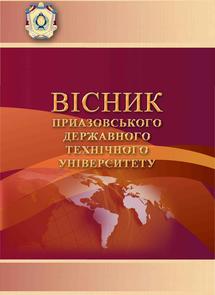Анализ и совершенствование организационной культуры высшего учебного заведения.
DOI:
https://doi.org/10.31498/2225-6725.31.2016.104869Ключові слова:
организационная культура, профиль, учебное заведение, студенческая среда.Анотація
Розглянуті визначення «організаційної культури» різних авторів, відмічено, що основою культури організації є внутрішні цінності, переконання, установки - все те, що формує особу людини. Тому питанням формування організаційної культури ВНЗ повинна приділятися особлива увага, оскільки молоді люди багато в чому визначають свої ціннісні орієнтації і вибирають життєву позицію саме в період навчання в навчальному закладі. Відповідно до моделі конкуруючих цінностей було визначено, що нині в ДВНЗ «ПДТУ» переважає бюрократичний і ринковий типи організаційної культури. Основний напрям зміни в культурі ВНЗ, на думку співробітників університету, що брали участь в соціологічному опитуванні, має бути пов'язаний з посиленням кланової та адхократичної складових. Для аналізу культури в студентському середовищі була використана клінічна методика Е. Шейна. Більшість студентів, що брали участь в опитуванні, позитивно оцінили зовнішні атрибути організаційної культури, проте оцінка ефективності використання якісних чинників, що визначають студентську культуру, дозволила виявити значний невикористаний потенціал. Питання вдосконалення культури університету повинні стати пріоритетними в діяльності адміністрації і викладацького складу учбового закладу, також в цю роботу слід залучити органи студентського самоврядування.
Посилання
- Schwartz H., Davis S. Matching corporate culture and business strategy // Organizational dynamics. Summer, 1981.
- Ouchi W. Theory «Z»: Haw American Business can meet the Japanese challenge. - Reading, MA: Addison - Wesly, 1981.
- Gold K, Managing for Success: A Comparison of the Private and Public Sectors // Public Administration Review, 1982. Nov. - Dec.
- Sathe V. Culture and related corporate realiries. - Richard D. Irvin, Inc., 1985.
- Shein E.H. Organizational Culture and Leadership: A dynamic view. - San Fransisco. CA.: Jossey-Bass Inc., 1985.
- Kilmann R., Saxton M. Issues in Understanding and Changing Culture // California Management Review, Winter, 1986.
- Камерон К. Диагностика и изменение организационной культуры / Камерон К, Куин Д.; пер. с англ. под ред. И.В. Андреевой. - СПб.: Питер, 2001 - 320 с.
- Шейн Э.Х. Организационная культура и лидерство / Шейн Э.Х.; пер. с англ. под ред. В.А. Спивака. - СПБ.: Питер. - 2002. - 336 с.
- Резник С.Д. Управление развитием организационной культуры в студенческой среде высшего учебного заведения / С. Д. Резник, М. В. Черниковская, В. Г. Камбург // Известия высших учебных заведений. Поволжскийрегион. Общественныенауки. - 2012. - № 2 (22). - С. 127-136.
##submission.downloads##
Опубліковано
Як цитувати
Номер
Розділ
Ліцензія
Авторське право (c) 2019 Тетяна Михайлівна Шестакова

Ця робота ліцензується відповідно до Creative Commons Attribution-NonCommercial 4.0 International License.
Журнал використовує ліцензію Creative Commons Attribution 4.0 International (CC BY 4.0).
Це означає, що автори зберігають авторські права та дозволяють іншим:
-
вільно використовувати, змінювати, адаптувати, поширювати статті;
-
навіть у комерційних цілях — за умови зазначення авторства та посилання на джерело.
Повний текст ліцензії: https://creativecommons.org/licenses/by/4.0/deed.uk



